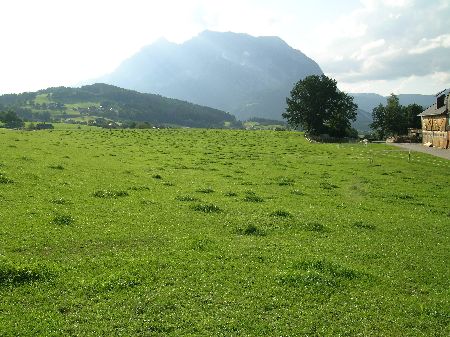By introducing new or adapted pasture systems, attempts are made to make pasture farming more attractive. Short grass or paddock pastures are best suited for intensive grazing, although these systems can possibly be combined with portion pasture (when cover crops are grown in autumn). A characteristic feature of short-grass pasture is the constant growth height, which is approx. 6 - 7 cm in spring and approx. 7 - 10 cm in late summer and autumn, each measured with a ruler. Since the low growth height limits feed intake, it is not suitable for achieving high individual animal performance.
In the paddock pasture the growth height is approx. 10 - 15 cm and is therefore around twice as high as in the short grass pasture. This means the cows can consume more feed per bite and the feed intake is higher. This results in higher individual animal performance than with short grass pasture.
Since the two pasture systems differ primarily in the type of pasture management and the different growth heights, and this probably results in different feed intakes, which in turn should and could lead to different yields, a system comparison should be carried out in the present experiment.
The following questions should be discussed:
- Comparison of yields (feed intake) short grass pasture - paddock pasture
- Area requirements of young calves in short grass or paddock pasture
- Nutritional value of the feed over the course of the year
- Comparison of pasture management of both systems
- Determination of the suitability of intensive pastures for rearing calves
- Collection of experience in dealing with both pasture systems
- Survey of the population composition and changes in the plant population through intensive grazing systems
Pasture farming of dairy cows
Final report system comparison short grass pasture - paddock pasture
Further information on project management can be found in the database for research and sustainable development (Dafne) -> Link







